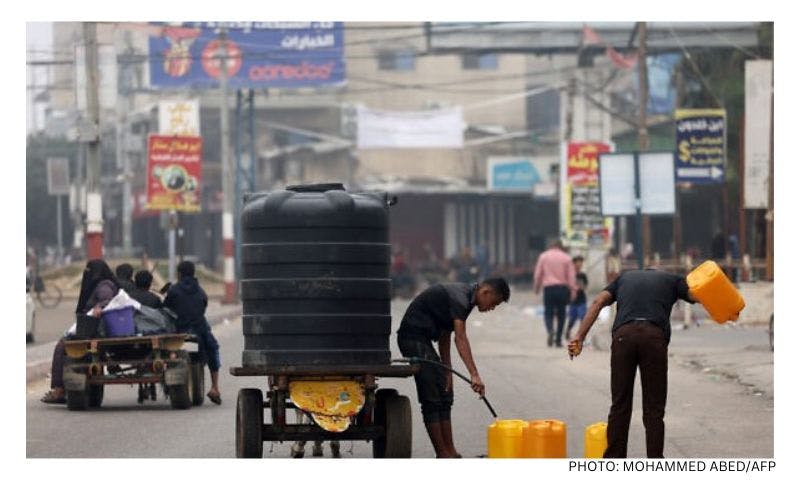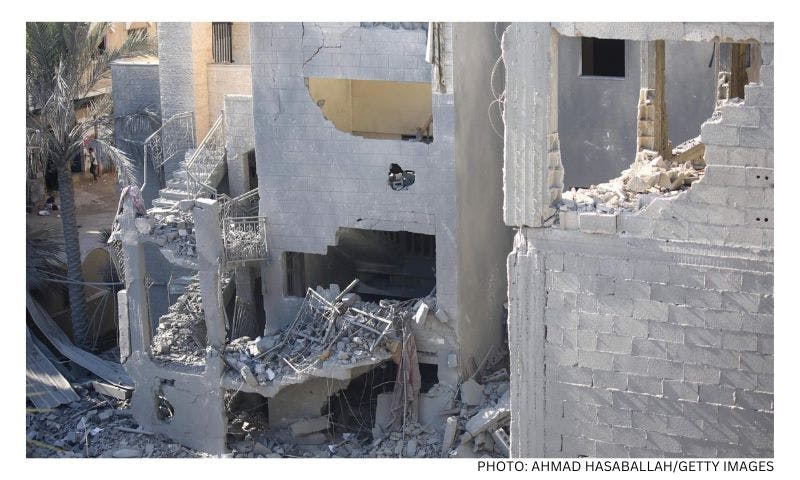Published: 16 August 2019
Last updated: 4 March 2024
In his piece on The Jewish Independent, former Australian Ambassador to Israel, Peter Rodgers, vividly articulated this narrative. In a nutshell, Rodgers’ version is as follows:
The 2015 Joint Comprehensive Plan of Action (JCPOA) nuclear deal between Iran and the West was a real achievement, which (Rodgers quotes from Prime Minister Scott Morrison’s December 2018 address) “took Iran from the brink of having enough fissile material for a nuclear weapon to a place where the international community has daily oversight of its nuclear activities”.
Then everything went pear-shaped in May 2018, when US President Donald Trump left the JCPOA. “An Iranian comeback was only a matter of time”, argues Rodgers.
This response included Iran’s “announcement that it will enrich uranium at five per cent and increase its stockpile of low-enriched uranium above 300 kilograms” which contravenes the JCPOA, in addition to “interference” with oil shipping from the Gulf.
I used to say to my students at university, “an elephant standing on one leg can only be seen in a circus”. The reductionist description of events, as presented by Rodgers, survive in the real world. A nuanced and wider of what has transpired yields a completely different story in the Iranian case.
Rodger’s version contains several misconceptions.
- The JCPOA was a worthwhile achievement that solved the problem of Iranian rogue behaviour. Rodgers neglected to fully quote PM Morrison’s words on the matter. After noting the “worthy achievements” of the JCPOA, Morrison went on to list its shortcomings: “The agreement does not address Iran’s destabilising activities in the Middle East and beyond. It does not address Iran’s proliferation of ballistic missiles and technology, and activities undermining Israel’s security, and support for terrorist groups. These activities are ones the global community must act on”.
- Iran kept the deal. The International Atomic Energy Agency (IAEA) has verified on 13 occasions that Iran has not breached the restrictions on the amount and level of enrichment. But these IAEA reports not address a much wider array of evidence now available.
In my article in The Australian (July 7), I explained how documents from the secret nuclear archive, stolen by Israel from Teheran in early 2018, prove that Iran has grossly violated the deal from day one and is still working to complete its atomic bomb project.
Two examples of this are the broken Iranian promises under the JCPOA to redesign the Fordow plant, originally built to enrich uranium to military grade levels, and not filling with cement the core of the Arak heavy water reactor, where plutonium for nuclear weapons can be produced (instead merely blocking replaceable pipes in it).
Intelligence about such violations, and presumably much more, was a major factor leading to Trump’s decision to abandon the JCPOA.
- The Iranian response was limited. Following the withdrawal from the JCPOA, the US reintroduced harsh economic sanctions, gradually increasing their bite and vastly reducing Iranian oil exports. At the same time, Trump’s constant approaches to the Iranian leadership to negotiate a new deal were rejected outright by Tehran.
4. Instead, Iran escalated its threats and steps to breaking the nuclear deal, and launched an aggressive campaign against oil shipping from the Gulf. What Rodgers lightly defines as “Iranian interference with the flow of oil through the Strait of Hormuz” are in fact illegal attacks and hijacking of tankers and other piracy activities and acts of belligerence.
Finally, Rodgers wisely advises Morrison to tell Trump that “Australia will cooperate with international efforts to keep the oil flowing, possibly including the use of Australian navy vessels”. But then he adds, “there must be an important proviso to Australian involvement. Action in the Strait should not be allowed to morph into a wider military campaign against Iran linked to US, Israeli and Saudi Arabian claims about Iranian nuclear weapons ambitions”.
As a diplomat, Rodgers surely knows that diplomacy is a global discussion, where you need to clearly state your expectation and position. No one wants war - both Trump and the Iranians are openly saying so.
At the same time, facing a rogue element without a credible threat of force to back one up is foolishly ineffective. It’s like going into a duel while notifying your opponent you are firing only blanks.
War should, of course, be avoided. But declaring on every podium that you would not go to war, no matter what – as Rodgers urges - means making a mockery of any concept of deterrence. Such behaviour is exactly what gives Iranian Revolutionary Guard Corps and their 'hard-line' allies in Tehran the freedom to provoke and harass, to argue that Tehran can wait out the sanctions, and eventually force the world to accept a nuclear-armed Iran dominating the neighbourhood through threats, terrorism and .
If it is peace we are truly after, we should follow Nathan Sharansky’s famous advice: “The only peace that can be made with a dictator is one that must be based on deterrence. For today, the dictator may be your friend, but tomorrow he will need you as an enemy.”
Photo: Iran's Press TV publishes unverified footage of a burning oil tanker in the Gulf of Oman (BBC)




